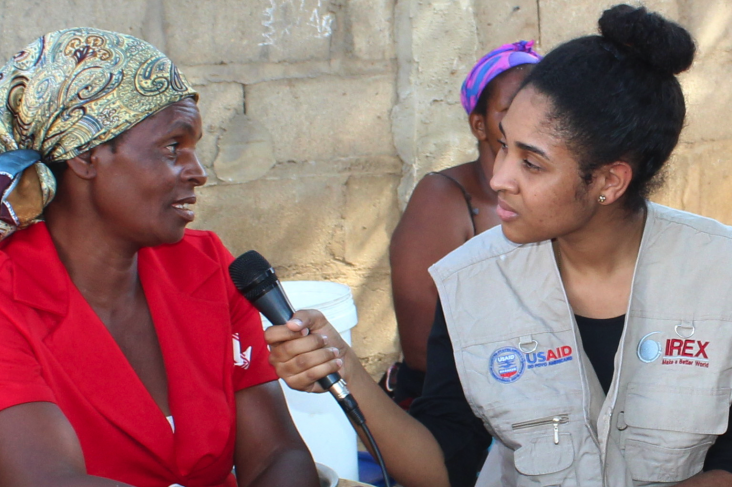Speeches Shim

December 2015—Mozambique’s young democracy needs its citizens to be better informed about issues like the environment, health, climate change and economic growth. Citizens must be able to hold their leaders accountable with facts.
That is why USAID recently partnered with IREX to strengthen Mozambique’s media by training 33 of the brightest emerging journalists in an ongoing program called Media Lab. The country’s next generation of journalists will emerge from the program with the right skills and network to deliver accurate, relevant and impactful news to Mozambican citizens.
Media Lab students commit 10 months, full-time, to the program. They work together to conduct interviews, write articles, produce a newspaper and television broadcast, and use digital media platforms. The collaborative classroom environment asks students to think critically and freely discuss issues with each other. Thanks to its focus on journalism ethics, Media Lab students will set a new standard for ethics in Mozambican journalism upon graduation.
The students come from a variety of professional backgrounds. Only 50 percent have backgrounds in journalism.
Sheila Magumane is one of many students who joined Media Lab to build upon the journalism theory she learned at Eduardo Mondlane University in Maputo with practical experience. Since Magumane was a little girl, she dreamed of becoming a professional news anchor. She says that Media Lab has been “a kind of salvation.” Now, she has plenty of opportunities to get in front of the camera and refine her skills with peer feedback and professional mentoring.
Her biggest challenge now, she says, is to improve her writing skills. Media Lab has taught her how to recognize quality writing in journalism.
“Quality journalism is impartial,” says Magumane. “The stories we write are not for or against the government ... we just report the truth.”
She watches TV news anchors and reads news articles with a critical mind—looking for what is not mentioned to come up with questions about more meaningful issues.
Magumane and her classmates seem undeterred by the challenges they will face once they graduate from Media Lab. Scarce resources for independent news organizations, high costs of transportation around the country, and political pressure to report news that is favorable to the government are enough to quell the tenacity of even an experienced journalist.
But Magumane stands firm. “I am here to do what is right,” she says. “I will continue to search for ethics in my professional career. And I know that I will have what I need to be successful when I leave here.”
The Media Lab is one of several activities under USAID’s Media Strengthening Program for Mozambique, which runs from 2012 to 2017. The program aims to develop an open, diverse and self-sustaining Mozambican media sector that provides high-quality information to citizens.
LINKS
Follow @USAIDMozambique, on Facebook, on Flickr, on YouTube

Comment
Make a general inquiry or suggest an improvement.